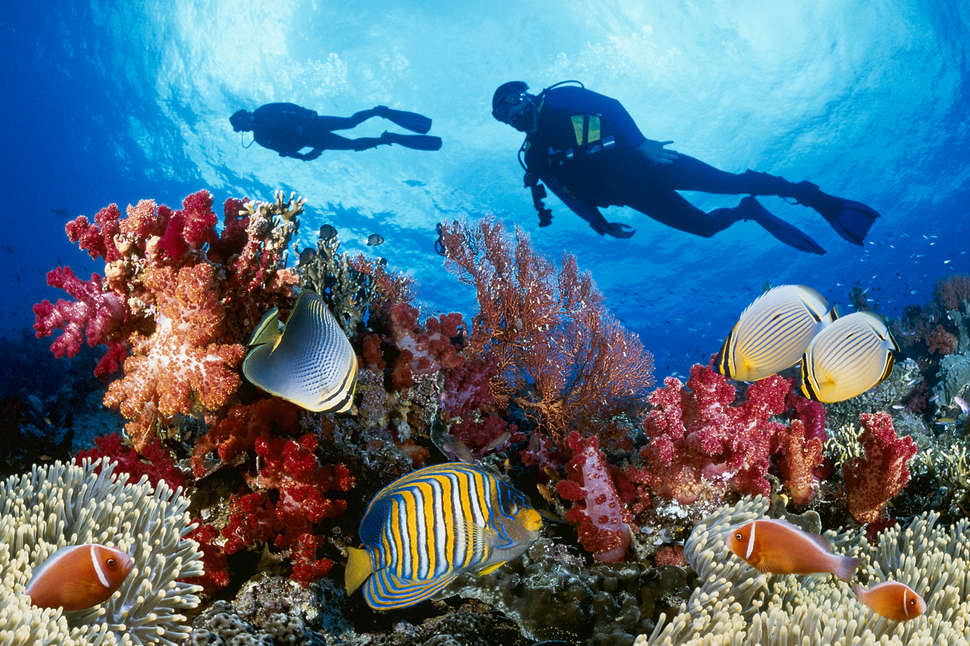Australia is blessed with some of the world’s best underwater-diving locations, with the Great Barrier Reef being the jewel in the crown.
Despite the awaiting underwater paradise amongst the myriad reefs and wrecks around the country, diving is not without potential risk to health.
Certain medical conditions can significantly increase this risk even to the point of posing a risk to human life.
It is not just ‘another world’ awaiting divers in the depths of the deep blue; it is a whole new world of medicine also – even to the point that there are doctors specifically trained and experienced in the assessment of patients with respect to dive safety.
These doctors have completed specific courses and qualifications in order to carry out what are routinely known as ‘dive medicals’.
Underwater diving involves significant increases in barometric pressure (a hyperbaric environment) with increasing depth of a dive.
This is not a proportional change however, with maximal rate of change occurring in the earlier stages of submersion – meaning that shallow water dives (even to 10 metres) are just as dangerous as the deeper dives.
As divers return to the surface, the reverse is true, and barometric pressure reduces again, returning to atmospheric pressure at the interface between water and the outside air.
With a complex interplay between changing barometric pressure and it’s subsequent effect on partial pressures of inhaled gases and a diver’s lung volumes, the use of self-contained underwater breathing apparatus (SCUBA) is on one hand genius, whilst also potentially fraught with danger.
SCUBA allows us to pressurise inhaled gas to a level that counteracts the pressure of the surrounding water at increasing depths of a dive.
Inhaled gases are a mixture of oxygen and nitrogen, with some special mixtures at greater depths also including helium.
Indeed, divers are subject to a very unique collection of medical conditions not seen in any other environment.
These conditions emanate from:
- Expansion of gas surrounding or within soft tissues / potential spaces / or respiratory system (‘barotrauma’)
- Excess absorption of nitrogen gas into the bloodstream at deeper dives (‘nitrogen narcosis’)
- Failure to adequately remove nitrogen from the system resulting in gas bubble formation in bodily systems (‘decompression sickness’)
- Impaired removal of carbon dioxide (‘oxygen toxicity’)
Other conditions / issues potentially faced by divers include:
- Panic / anxiety (arguably the greatest cause of death in divers)
- Fatigue / lack of fitness
- Salt water aspiration
- Near-drowning
- Asthma
- Temperature regulation issues / hypothermia
- Extra strain on pre-existing medical conditions (e.g. heart disease / hypertension)
- Envenomation from marine life
Home to some of the most treacherous waters, rips and tidal swells in the world, combined with our nation’s consistently high general safety and medical standards, Australia is amongst the strictest country in the world for ensuring all SCUBA divers, whether recreational or occupational, remain safe in our waters.
Anyone wishing to SCUBA dive is required to fill out a specific Dive Questionnaire, enquiring about a whole range of symptoms or known medical conditions, that may pose health risks to diving safely.
Certain conditions may even contraindicate diving completely – the commonest and most mundane being asthma. If any section of the questionnaire is answered ‘yes’ (e.g. to symptoms or known conditions), prospective divers will be required to undergo a formal dive medical.
Certain dive companies may require formal dive certificates for anyone over age 55, whilst depending on the type of diving (e.g. some courses / occupations requiring diving) some divers may require annual dive medical review / assessment.
Most Australian tour operators will not accept a dive medical certificate obtained overseas if it does not explicitly state it meets Australian standards.
The Australian dive medical is required by law to be carried out by medical practitioners who have trained to a satisfactory level of expertise under the Australian Standard (AS 4005.1 / AS 2299.1) and these standards closely follow those set out by SPUMS (South Pacific Underwater Medical Society).
Dr Gary Zimmerman is a certified Dive Medical Practitioner and has many years of experience in this field. To book an appointment to see Dr Zimmerman to obtain or renew your Dive Medical certificate, phone Lifecare Prahran Sports Medicine on (03) 9529 8899.
The clinic is close to suburbs including Malvern, South Yarra, Toorak, Armadale, St Kilda East, Caulfield, Richmond and Hawthorn, and has early and late appointments for all your Sports Medicine and Physiotherapy needs.

